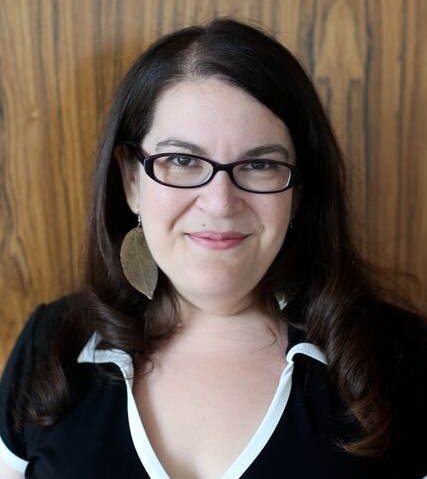- Home |
- Search Results |
- Author Naomi Alderman on writing about an under-discussed community

When I started work on my first novel Disobedience, which was published in 2006, I knew that I wanted to write about the community I come from: the Orthodox Jewish community in Northwest London. My people are simultaneously pretty secular in some ways – I don’t come from a Chassidic sect; we dressed in ordinary clothes, had regular jobs and so on – and also really different in the way we think, our value systems, our assumptions about the world.
I knew that writing this book would be a challenge, that I’d have to introduce my readers very quickly to a new set of ideas, customs and priorities… all without making my characters and world seem offputtingly alien. And I also knew that it hadn’t been done before, at least not for a long time. My dad’s a historian of British Jewish life and he reckoned that the last novel about Orthodox Jews in Britain had been Daniel Deronda, published in 1876!
When I was writing the book, a couple of Jewish people said to me: “why would you write about us? No one would want to read it, we’re so boring!” After it was published, someone at a Jewish organisation said: “only Jews will read this, we’re your only audience.” The Jewish Chronicle gave the novel a terrible review… I suspect because they were afraid of how much I’d said about the community.
And yet: I went on to win awards for the book, both in the UK and in other countries. It certainly wasn’t just of interest to Jewish people, and no one has called it boring! Most excitingly for me, since Disobedience was published there have been more and more novels about the Orthodox Jewish world in the UK – I’m so happy if anything I did has made people realise that there are no limits, and that writing about your own community – if that’s what you choose to do – will be fascinating for outsiders.
So, if you want to write, and particularly if you want to write about an under-discussed community:
1. Be Brave. This stands first and all by itself. Courage will be required. Practise it: the more you practise bravery, the braver you’ll get.
2. Write as if no one’s going to read it. If you have things to say, just write them down. I wrote the whole of Disobedience telling myself I’d be lucky if some small press wanted to pay me £20 to print 50 copies of it. You can’t write with the imagined aunties and uncles, the community, the Rabbis, the neighbours and the gossips staring over your shoulder. Write it for yourself, first of all.
3. Tap into your anger. Don’t feel you need to whitewash, or pretend that the place you come from is perfect. Anger is a good thing. You can love people and still feel angry. Anger has important things to tell us. You do not have to be the one who represents your whole community to the world; the community is strong enough to take it.
4. Be fascinated. The writer’s eye is the eye of the outsider, the alien coming to a familiar scene as if they’ve never witnessed it before and is intrigued by the details, the strangeness. People only think a community or a world is boring if they’ve lived there their whole lives. To someone from Chad or Mongolia my ‘boring’ bedroom in London might be fascinating.
5. If you have doubts about writing, fold them into the writing. I ended up running the theme of “silence” through my novel, because I felt so strongly that silence is what was demanded of me. If you have a feeling about your writing, other people in your community have it about all kinds of speech acts. Put it in the work, that’s where it belongs.
6. Never put all your eggs in the communal basket. If you’re planning to write about the place you come from, make sure you have a way of making a living that doesn’t rely on them feeling kindly towards you. This is another way of securing number 1, bravery, which is the key to it all.
Find out more about WriteNow.